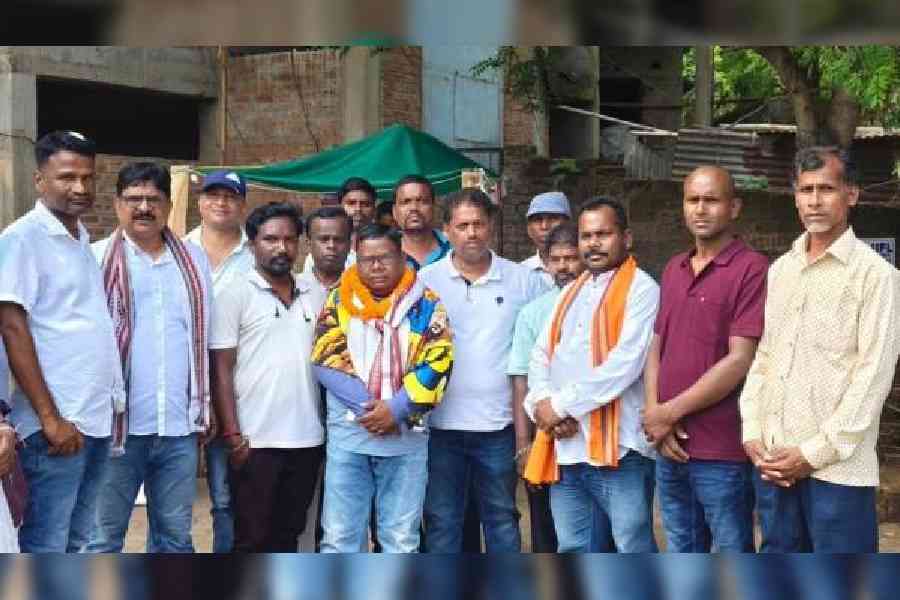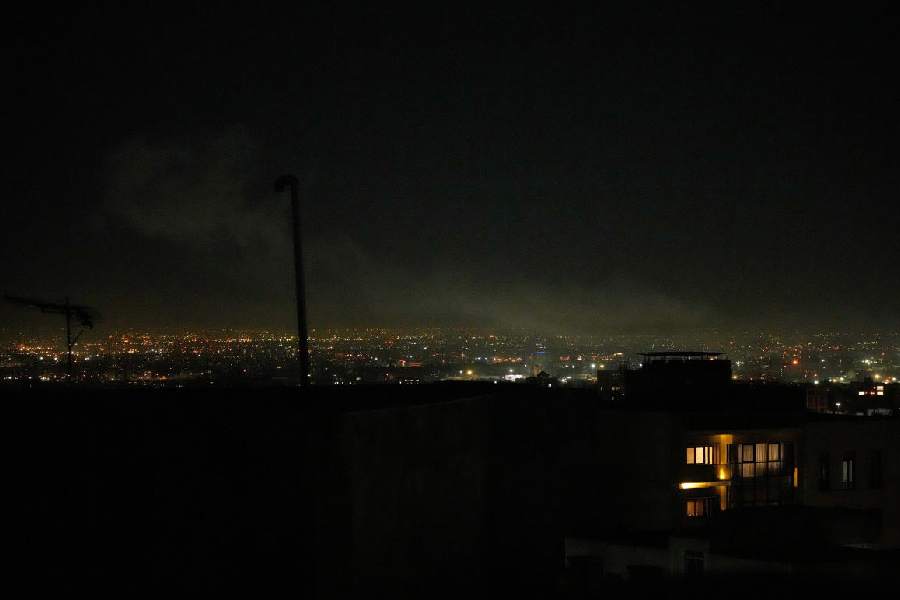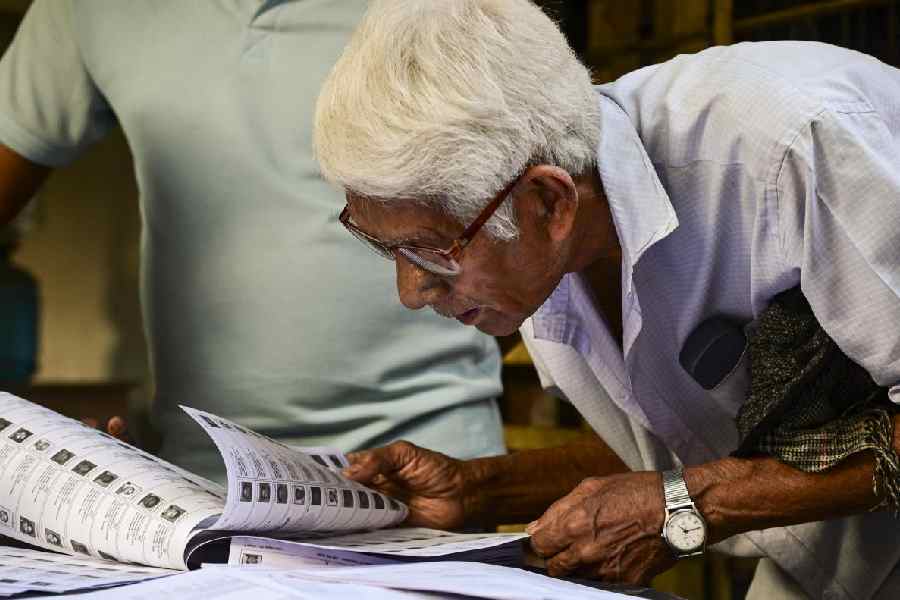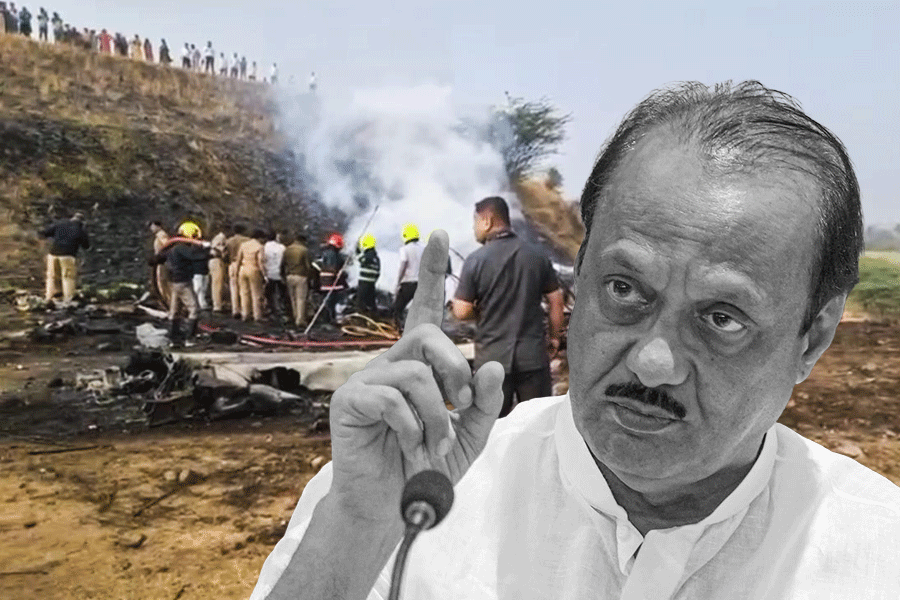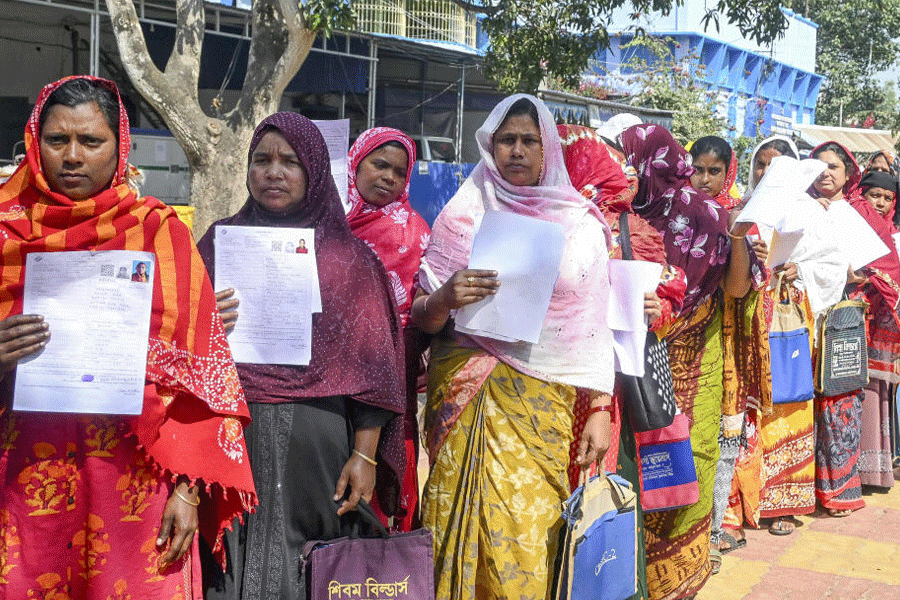Mahendra Hembram, convicted of the 1999 murder of Australian missionary Graham Staines and his two young sons, walked out of jail to a hero's welcome on Wednesday amid indications that similar relief might await main accused Dara Singh.
Mahendra, 51, a lifer released by the state’s 10-month-old BJP government on the grounds of good conduct after 25 years in jail, was garlanded by Hindutva groups outside Keonjhar jail and publicly felicitated in Anandapur town.
A similar welcome had been accorded three years ago to the 11 men convicted of gang-raping Bilkis Bano and killing her family members during the 2002 riots after the Gujarat government remitted their life sentences. Later, the Supreme Court sent them back to jail.
A Church spokesperson said there was nothing to say since the process of law had been followed in Mahendra’s release. A spokesperson for Staines’s widow Gladys spoke of forgiveness saying Mahendra had "repented" and was "a reformed man".
Mahendra, however, declared after his release that he was "opposed to religious conversions" (which Staines’s killers had falsely accused him of practising) and "cow slaughter" and that he had been "falsely implicated in the case".
The State Sentence Review Board remitted Mahendra’s sentence after the Supreme Court asked the state government to decide on his plea for remission.
The court passed a similar directive on the remission plea from Dara Singh — the high-profile Bajrang Dal activist and mastermind of the triple murder, serving a life term after his death sentence was commuted.
However, sources said the state government might delay Dara's release for a while to avoid political controversy.
Chief minister Mohan Charan Majhi had been accused of campaigning for Dara’s release when he was in the Opposition. In September 2022, Majhi, then MLA from Keonjhar, had sat on a dharna alongside a journalist in support of his demand to be allowed to meet Dara in jail.
A mob led by Dara had burnt alive Staines and his sons Philip, 10, and Timothy, 6, inside their SUV at Manoharpur — Mahendra’s home village in Keonjhar district — on the night of January 21-22, 1999.
Mahendra was arrested on December 9, 1999, and Dara alias Rabindra Pal Singh on January 31, 2000. They were the only accused to be convicted among the 51 people arrested in the case.
In 2003, Mahendra was awarded a life term and Dara sentenced to death. Orissa High Court commuted Dara's sentence to life imprisonment in May 2005, which the Supreme Court upheld in 2011.
"Under the jail manual, a (life) convict can be released after 14 years on the grounds of good behaviour and an act of reformation," director-general (prisons) Arun Ray said.
"It has to be done through the process of remission by the states and Union territories. Thirty-three convicts, including Hembram, who were serving life terms on different grounds, were released."
Keonjhar jail superintendent Manaswini Nayak said: "Keeping his good conduct in mind, we had engaged him as night-watchman for the ward. He was getting remuneration. All his earnings were handed over to him on release."
Subhankar Ghosh, personal assistant to Gladys and her spokesperson in Odisha, told The Telegraph: "Mahendra is a reformed man now. He has already repented for his crime. Raking up the past will serve no purpose. We must hate the sin but not the sinner. Sinners have changed and God has forgiven them."
Father Dibakar, Odisha Catholic Church spokesperson, said: "As it has been done in accordance with the law, we don’t have any objection. We hope there is no political motive behind this."

